Oct 28, 2016 | Non categorizzato, Word of
https://www.focolare.org/gb/files/2016/10/2016-11.mp3
We can learn Paul’s secret. We can do all things when we discover the constant presence of Jesus in our lives and work in partnership with him. There are moments when we feel happy, full of strength and everything seems light and easy. At other times we are afflicted by difficulties that make our days bitter. These can be the result of tiny failures in loving the people around us or our inability to share our ideal of life with others. Or we can be hit by illness, money troubles, family problems, inner doubts or trials, loss of work, the effects of war, which crush us and seem to have no let-up. What is especially burdensome in these things is feeling ourselves forced to face the trials of life alone, without support from someone who can give us the crucial help we need. Few people like Paul have experienced such intense joys and pain, successes and lack of understanding. And yet confronting all risks he managed to carry on with his mission, without giving in to discouragement. Was he a superhero? No, he felt himself weak, fragile, inadequate, but he had a secret, one he shared with his friends in Philippi: ‘I can do all things through him who strengthens me.’ In his own life he had discovered the constant presence of Jesus. Even when everyone had forsaken him, Paul did not feel alone. Jesus stayed close by. He it was who gave Paul security and urged him to go on, to face every hardship. Paul’s secret could be ours too. I can do all things when I too recognize and welcome in my pain the mysterious closeness of Jesus who almost identifies himself with my suffering, taking it upon himself. I can do all things when I live in a communion of love with others, because He comes into our midst, just as he promised (see Mt 18:20), and I am supported by the strength of unity. I can do all things when I welcome and put into practice the words of the Gospel; they make me perceive the road I am called to follow day by day, teaching me how to live and giving me confidence. I will have the strength to face not only my personal trials, or those of my family, but also those of the world around me. So appalling are the problems of society and the nations, that this could seem naïve, something utopic, and yet it is true that ‘all things’ are possible for us with the presence of the Omnipotent – ‘all things’ and only things, that are the good which He, in his merciful love, has decided for me and for others through me. And if these things do not come about immediately, we can carry on believing and hoping in God’s plan of love that spans eternity and will be fulfilled anyway. All we have to do is work in ‘partnership’, as Chiara Lubich taught: ‘“This may be a case when I can do nothing for that person who is sick or in danger, or for that complicated situation… Well then, I will do what God wants of me in this moment: study well, sweep well, pray well, take care of my children well… And God will see to the untangling of that knot, comforting the one who is suffering, sorting out that unexpected event.” It is a work in a partnership of perfect communion, which demands from us great faith in God’s love for his children and which makes it possible, through our action, for God himself to have trust in us. This mutual confidence works miracles. We will see that what we could not do, Someone else has done, and has done it far better than us.’1
Fabio Ciardi
1 Chiara Lubich, Yes Yes No No (London: New City, 1977), pp. 113-14 (translation revised). for ages 4-8 | for ages 9-14 | for ages 15-17 | MP3 Audio
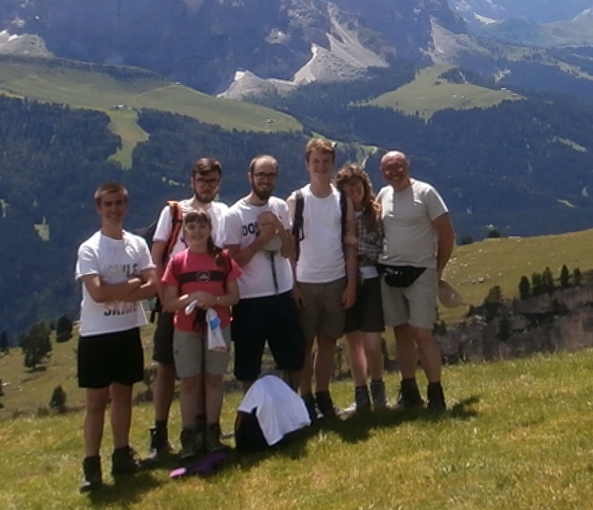
Oct 27, 2016 | Focolare Worldwide
 “We have always wished to have a larger family”, Corrado and Elisabetta Ferri told us. But when one has five kids, aged 10 to 21, enlarging the family takes on a different meaning: it implies opening one’s heart to the problems of the world, and certainly with a bit of sacrifice. Corrado and Elisabetta have been married for 24 years, and in seeing their children grow in an atmosphere of love which only the family can give, wanted to help those who have never experienced that love. “That’s why,” they said, “the minute our economic conditions allowed it, we signed up for one of the ‘Adoptions at a Distance’ projects of the New Families Association and welcomed Athiphong, a Thai child.” After about 20 years of support and intense correspondence, Athiphong, now an adult, has found a job and thanks to the studies achieved, can now support his new family and also the original one. “One year we managed to round off the sum we sent to support him, which was not much in reality. But it was moving to learn that the small extra sum allowed Athipong’s family to have the interior of their modest home cemented, to the admiration and pleasure also of their neighbours.” Now that Athiphong is independent, the Ferri family has decided to support a Thai girl. Having lived this experience and being raised in an ambience where solidarity and sharing is concrete, the children of Corrado and Elisabetta decided to put together all their savings obtained from festivities and birthdays of each one, and assign them to a new support project. This led to the arrival of Maleta, a splendid Congolese child. “What a surprise and how much amusement when some Christmases ago, we received the usual letter with photo, in which Maleta, together with a nice group of peers, showed off the T-shirt of the Italian Soccer team of which our family is a fan.” So all distances are bridged by family bonds and all share vicissitudes, even the painful ones of Maleta who transferred to another city with an aunt, accompanied by the remembrance and prayers of his parents, brothers and sisters far away. “Now our children are supporting little Nzata together.” To continue this extraordinary chain of solidarity is the second-born, Edoardo. After graduating with maximum grades, he participated in a contest. He won the first prize which was quite a big amount: “All of us in the family,” recounted Corrado and Elisabetta, “were so proud of him and the excellent results obtained with great effort, that we insisted he put aside the sum for himself since he deserved it. But without thinking twice, some days later and to our surprise, he told us that he would willingly assign the sum to a child of his own, as a new support for a distance project. And so our family welcomed a little girl from Jordan.” And they concluded with conviction: «We believe that this open heart did us and our children a lot of good, and that love when given always returns with generosity.»
“We have always wished to have a larger family”, Corrado and Elisabetta Ferri told us. But when one has five kids, aged 10 to 21, enlarging the family takes on a different meaning: it implies opening one’s heart to the problems of the world, and certainly with a bit of sacrifice. Corrado and Elisabetta have been married for 24 years, and in seeing their children grow in an atmosphere of love which only the family can give, wanted to help those who have never experienced that love. “That’s why,” they said, “the minute our economic conditions allowed it, we signed up for one of the ‘Adoptions at a Distance’ projects of the New Families Association and welcomed Athiphong, a Thai child.” After about 20 years of support and intense correspondence, Athiphong, now an adult, has found a job and thanks to the studies achieved, can now support his new family and also the original one. “One year we managed to round off the sum we sent to support him, which was not much in reality. But it was moving to learn that the small extra sum allowed Athipong’s family to have the interior of their modest home cemented, to the admiration and pleasure also of their neighbours.” Now that Athiphong is independent, the Ferri family has decided to support a Thai girl. Having lived this experience and being raised in an ambience where solidarity and sharing is concrete, the children of Corrado and Elisabetta decided to put together all their savings obtained from festivities and birthdays of each one, and assign them to a new support project. This led to the arrival of Maleta, a splendid Congolese child. “What a surprise and how much amusement when some Christmases ago, we received the usual letter with photo, in which Maleta, together with a nice group of peers, showed off the T-shirt of the Italian Soccer team of which our family is a fan.” So all distances are bridged by family bonds and all share vicissitudes, even the painful ones of Maleta who transferred to another city with an aunt, accompanied by the remembrance and prayers of his parents, brothers and sisters far away. “Now our children are supporting little Nzata together.” To continue this extraordinary chain of solidarity is the second-born, Edoardo. After graduating with maximum grades, he participated in a contest. He won the first prize which was quite a big amount: “All of us in the family,” recounted Corrado and Elisabetta, “were so proud of him and the excellent results obtained with great effort, that we insisted he put aside the sum for himself since he deserved it. But without thinking twice, some days later and to our surprise, he told us that he would willingly assign the sum to a child of his own, as a new support for a distance project. And so our family welcomed a little girl from Jordan.” And they concluded with conviction: «We believe that this open heart did us and our children a lot of good, and that love when given always returns with generosity.»
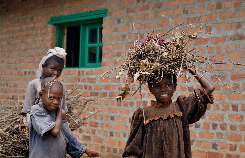
Oct 26, 2016 | Focolare Worldwide, Senza categoria
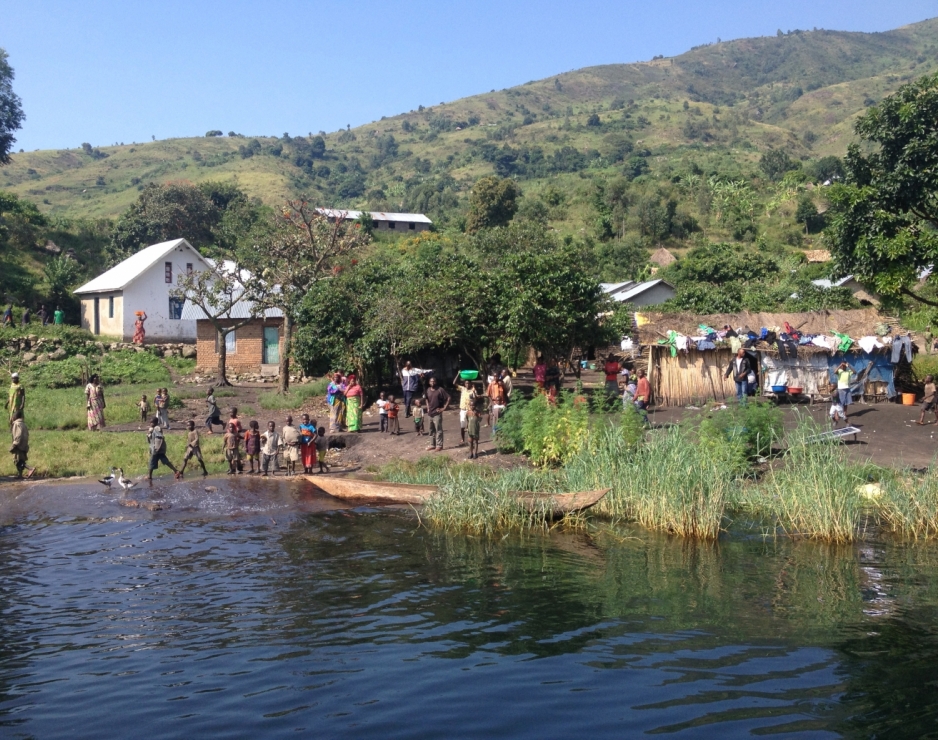 In school, the boys and girls use tree trunks as chairs and use their laps as desks. This all happens on the Isle of Idjwi in the middle of Lake Kivu, on the eastern side of the Democratic Republic of Congo. Because of its secluded location, it has been used as a platform for the secret movements of various military troops in the recent conflicts that have affected the country. On the island, many services are lacking such as the supply of electricity and transport. The population moves from the island to the mainland mainly by pirogue which, because of its instability, causes many deaths by sinking or drowning, leading to an extremely high mortality rate. The data gathered shows that in a family of five there is at least one widow or an orphan. The island’s economy is based on farming and fishing. In particular, beans, cassava, peanuts, soy beans and coffee are cultivated. There is also a consistent breeding of chickens, goats, turkeys and pigs. In the last years, however, agricultural production has diminished, among the many reasons for which was the deterioration of soil quality, poor training of farmers, and the absence of seeds and varieties that are more resistant to diseases. Given the economic situation, many young people on the island do not have jobs and career prospects.
In school, the boys and girls use tree trunks as chairs and use their laps as desks. This all happens on the Isle of Idjwi in the middle of Lake Kivu, on the eastern side of the Democratic Republic of Congo. Because of its secluded location, it has been used as a platform for the secret movements of various military troops in the recent conflicts that have affected the country. On the island, many services are lacking such as the supply of electricity and transport. The population moves from the island to the mainland mainly by pirogue which, because of its instability, causes many deaths by sinking or drowning, leading to an extremely high mortality rate. The data gathered shows that in a family of five there is at least one widow or an orphan. The island’s economy is based on farming and fishing. In particular, beans, cassava, peanuts, soy beans and coffee are cultivated. There is also a consistent breeding of chickens, goats, turkeys and pigs. In the last years, however, agricultural production has diminished, among the many reasons for which was the deterioration of soil quality, poor training of farmers, and the absence of seeds and varieties that are more resistant to diseases. Given the economic situation, many young people on the island do not have jobs and career prospects.  The four parishes there try to respond to the needs of the local population. Specifically the Bumpeta parish in the northern part of the island that counts about 76,000 inhabitants has been very active in running the primary and secondary schools, and for this has received an award from the Congolese state. Because of the population’s active participation in promoting the schooling of the island’s children and youths, AMU has initiated a project that focuses with conviction on the future of the country, and aims to support the parish of Bumpeta by furnishing the equipment of the Cikoma Institute. It is a high school specialized in pedagogical and social sciences that train the future teachers of the island. It is thus a school that looks to the future but that has to tackle the current backward conditions, and a population that is struggling to rise above poverty. The school is attended by about 900 boys and girls, divided into 14 classes. In some there are makeshift desks, in others practically everything is lacking. The project will chiefly equip the school with the 308 missing desks. Currently many students still use tree trunks as chairs and their knees as desks with the consequence of a serious deterioration in their posture. The desks will be built by a Congolese carpentry shop and in this way the project will help support the local production activities. The population of Bumpeta takes active part in carrying out the project and will primarily take charge of transporting the desks on the Island. Source: AMU online
The four parishes there try to respond to the needs of the local population. Specifically the Bumpeta parish in the northern part of the island that counts about 76,000 inhabitants has been very active in running the primary and secondary schools, and for this has received an award from the Congolese state. Because of the population’s active participation in promoting the schooling of the island’s children and youths, AMU has initiated a project that focuses with conviction on the future of the country, and aims to support the parish of Bumpeta by furnishing the equipment of the Cikoma Institute. It is a high school specialized in pedagogical and social sciences that train the future teachers of the island. It is thus a school that looks to the future but that has to tackle the current backward conditions, and a population that is struggling to rise above poverty. The school is attended by about 900 boys and girls, divided into 14 classes. In some there are makeshift desks, in others practically everything is lacking. The project will chiefly equip the school with the 308 missing desks. Currently many students still use tree trunks as chairs and their knees as desks with the consequence of a serious deterioration in their posture. The desks will be built by a Congolese carpentry shop and in this way the project will help support the local production activities. The population of Bumpeta takes active part in carrying out the project and will primarily take charge of transporting the desks on the Island. Source: AMU online
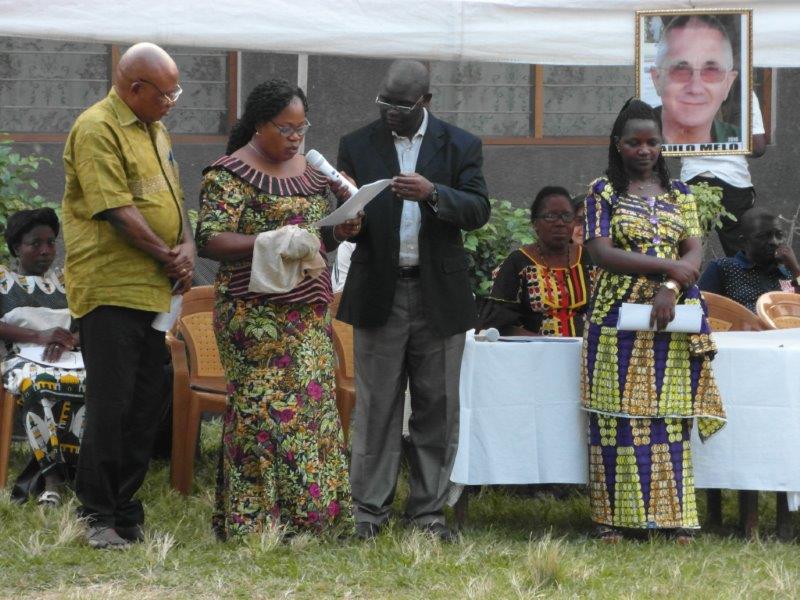
Oct 25, 2016 | Focolare Worldwide
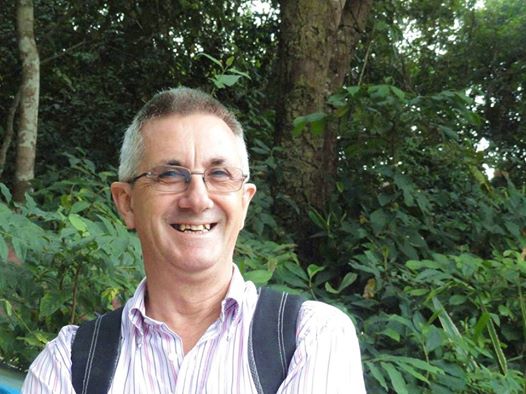 Sensitive to social problems, as a youngster in Portugal, Paulo fought poverty and human degradation in Lisbon’s poorest quarters. Unwilling to tolerate such inequality, he decided to fight with a group of extremists but soon realized that he couldn’t go along with everything they stood for. Still open and in search of answers he distanced himself from them. He met some young people from the Focolare and learned that they also wanted a revolution, the revolution of the Gospel that leads you beyond yourself and your comforts and places you at the service of others. This process led Paulo to make an even more courageous decision. When he finished his studies in economy, he felt called to leave everything and become a disciple of Jesus and, after a period of formation, he entered a focolare community as a consecrated member of the Movement. In 1977 he was transferred to Africa: first to Nairobi, Kenya and then to Kinshasa, Democratic Republic of Congo. Paulo shared joys and sorrows with his new brothers and sisters, challenges and enthusiasm as well as the love and wisdom that the Congolese so much appreciated in him. On one feast day they compared him to the hummingbird, a totem symbol that represented the joy of living, likeability, the ability to adapt and to know how to respond quickly to stimuli, resilience and the light-heartedness that is able to outdo negativity. Paulo managed to enculturate himself so well with the African people that he became a true son of Africa. It was as a son of Africa that the people of Congo wished to honour him and bid him farewell as they learned of his sudden death on September 12, 2016.
Sensitive to social problems, as a youngster in Portugal, Paulo fought poverty and human degradation in Lisbon’s poorest quarters. Unwilling to tolerate such inequality, he decided to fight with a group of extremists but soon realized that he couldn’t go along with everything they stood for. Still open and in search of answers he distanced himself from them. He met some young people from the Focolare and learned that they also wanted a revolution, the revolution of the Gospel that leads you beyond yourself and your comforts and places you at the service of others. This process led Paulo to make an even more courageous decision. When he finished his studies in economy, he felt called to leave everything and become a disciple of Jesus and, after a period of formation, he entered a focolare community as a consecrated member of the Movement. In 1977 he was transferred to Africa: first to Nairobi, Kenya and then to Kinshasa, Democratic Republic of Congo. Paulo shared joys and sorrows with his new brothers and sisters, challenges and enthusiasm as well as the love and wisdom that the Congolese so much appreciated in him. On one feast day they compared him to the hummingbird, a totem symbol that represented the joy of living, likeability, the ability to adapt and to know how to respond quickly to stimuli, resilience and the light-heartedness that is able to outdo negativity. Paulo managed to enculturate himself so well with the African people that he became a true son of Africa. It was as a son of Africa that the people of Congo wished to honour him and bid him farewell as they learned of his sudden death on September 12, 2016.  Masses, periods of mourning and prayer vigils were held in several parts of Congo while the funeral was being celebrated in Portugal. “We wanted to testify to all that Paulo had shown us in his life,” they write from Kinshasa. “Therefore, after the Masses that were celebrated in several places in Congo, on the weekend we continued, not weeping over Paulo, but celebrating with Masses of thanksgiving and testimonies. It is what is required by Congolese culture. We bid him farewell with dance, a typical drink and a small cake. In Kinshasa the ceremony was held on the campus of the Petite Flamme School, one of the social projects that Paulo had taken part in. After several testimonies, a traditional ceremony took place in which he was added to the list of the ancestors. A hole was made in the earth – which is usually made in front of the departed person’s home – and some palm wine was poured in as the following words were pronounced: “Here we all are to thank you for the time we spent together. And since you lived according to the teachings of the ancestors, behold, our clan now takes you as a model. We promise to live as you lived. We know that you have reached the village of the ancestors. We ask you to come now and share in this palm wine with us as a sign of our good memories. We hail you and ask you to greet all our dear ones that are in the village of the ancestors.” “How is it possible not to hear in these words an ancient expression that hearkens the communion of saints…” asked the focolalrini from Congo. “… an expression of the ancient wisdom that harks back to the communion of saints that joins earth to Heaven … and the love that continues to join us after death?” Paulo was so deeply enculturated with the Congolese that they wished his final farewell to be an expression of ancient traditions and the Gospel. Love prevailed over the fact that a strong young man should die – which is traditionally a sign of evil manoeuvring because of that man’s enmity, his guilt that had to be avenged.” The words of one couple were particularly meaningful: “With your arrival there above we feel that we’re not poor anymore; on the contrary, we’ve become even stronger. You were truly close to all of us, a true apostle of unity, a great seeker of God that knew where to find Him: in your sisters and in your brothers.”
Masses, periods of mourning and prayer vigils were held in several parts of Congo while the funeral was being celebrated in Portugal. “We wanted to testify to all that Paulo had shown us in his life,” they write from Kinshasa. “Therefore, after the Masses that were celebrated in several places in Congo, on the weekend we continued, not weeping over Paulo, but celebrating with Masses of thanksgiving and testimonies. It is what is required by Congolese culture. We bid him farewell with dance, a typical drink and a small cake. In Kinshasa the ceremony was held on the campus of the Petite Flamme School, one of the social projects that Paulo had taken part in. After several testimonies, a traditional ceremony took place in which he was added to the list of the ancestors. A hole was made in the earth – which is usually made in front of the departed person’s home – and some palm wine was poured in as the following words were pronounced: “Here we all are to thank you for the time we spent together. And since you lived according to the teachings of the ancestors, behold, our clan now takes you as a model. We promise to live as you lived. We know that you have reached the village of the ancestors. We ask you to come now and share in this palm wine with us as a sign of our good memories. We hail you and ask you to greet all our dear ones that are in the village of the ancestors.” “How is it possible not to hear in these words an ancient expression that hearkens the communion of saints…” asked the focolalrini from Congo. “… an expression of the ancient wisdom that harks back to the communion of saints that joins earth to Heaven … and the love that continues to join us after death?” Paulo was so deeply enculturated with the Congolese that they wished his final farewell to be an expression of ancient traditions and the Gospel. Love prevailed over the fact that a strong young man should die – which is traditionally a sign of evil manoeuvring because of that man’s enmity, his guilt that had to be avenged.” The words of one couple were particularly meaningful: “With your arrival there above we feel that we’re not poor anymore; on the contrary, we’ve become even stronger. You were truly close to all of us, a true apostle of unity, a great seeker of God that knew where to find Him: in your sisters and in your brothers.”
Oct 24, 2016 | Non categorizzato
October 23rd will mark the 60th anniversary of the 1956 uprising. This anniversary holds strong memories for the Focolare, especially for one of its main branches: the Volunteers. But are the ideals of the 1956 uprising linked to something that belongs to the past, to the story of Hungary? Or should the 60th celebrations be an opportunity to renew and to put into action those values for which thousands of people gave their lives for? Here is a glimpse into historical facts related through the personal testimonies of those who have kept up their Christian commitment to society and who are faithful to the most genuine values pursued in 1956, starting off from the evangelical choices that they made. Videos with subtitles (select language) https://www.youtube.com/watch?v=F-m85VMcI8g https://www.youtube.com/watch?v=bpxqy-fYHc8
Oct 23, 2016 | Focolare Worldwide
https://youtu.be/_fE7VtbWsbA Toward a Unity of Nations and a Unity of People
“I am honored to be here in the United Nations, this worldwide organization which brings together 185 member States, “united” for the main purpose of “maintaining international peace and security”.
This purpose, as stated in its charter, is pursued through respect for the fundamental rights of persons and nations, economic collaboration among all countries and the social development of each nation. Its activities have been aimed at eliminating the many scourges afflicting humanity: war, the arms race, the denial of the fundamental freedoms of each member of the human family, as well as hunger, illiteracy, and poverty.
This, we know, is the new concept of “peace and security” that has been entrusted to the United Nations: peace no longer intended as the absence of war, but as the result of conditions which generate peace.
It is therefore an organization deserving of our praise. And not only does it have the approval of the world community; it also has heaven’s blessing, if we believe the statement of Jesus Christ, Prince of Peace: “Blessed are the peacemakers for they will be called children of God” (Mt. 5:9).
I come to you today, representing a Movement which is actively present in practically all the nations of the world. And although it is much smaller and less well- known, it still has something in common with this great and celebrated organization.”
Read complete text of Chiara Lubich‘s address
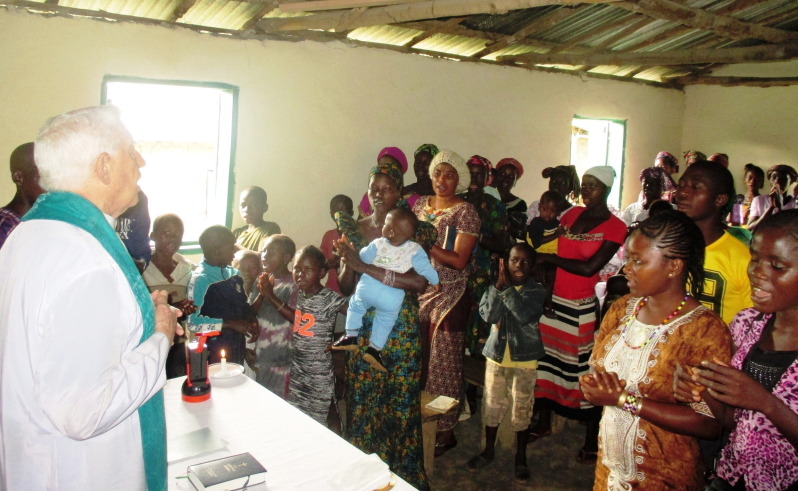
Oct 22, 2016 | Focolare Worldwide, Senza categoria
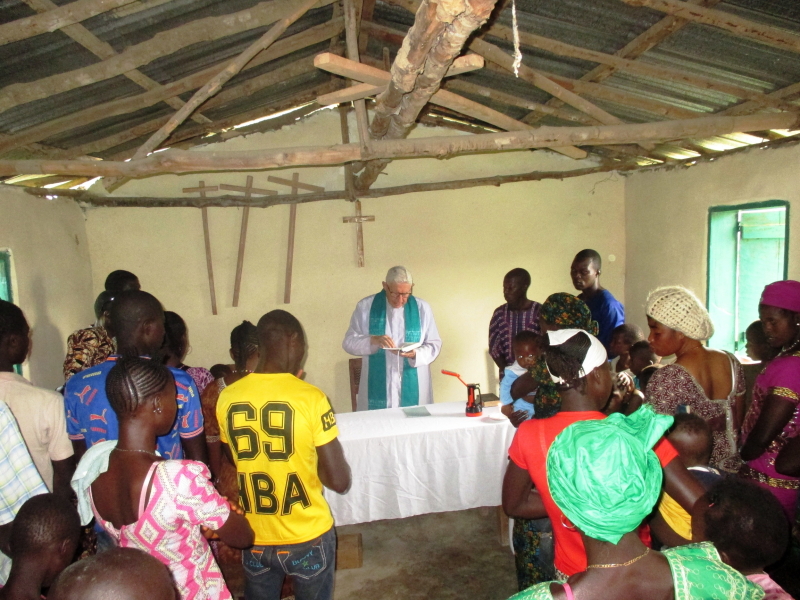 The first initiative of the Evangelii Gaudium Centre, created in Loppiano (Florence) to become the “Church that goes out,” is a qualification course in collaboration with the Sophia University Institute entitled, “Wake up the world.” This compelling slogan describes precisely Consecrated Life that will “Wake up the world,” in which consecrated persons with their radical choice of life, concur to restore true fraternity and communion in the world. It is the story of Fr. Antonio Guiotto in Sierra Leone: a Xaverian missionary. He had adhered to the spirituality of the Focolare ever since he was a student, and is now celebrating his 50th anniversary of priesthood, most of which was spent in the African country, and out of which around ten years (1991 to 2001) were in the frontline of a terrible civil war which terrorized and devastated Sierra Leone. And though like other foreigners he could have returned home, Fr. Antonio decided to remain in Kabala to share with its people all the events, helping them to continue believing in God’s immense love, despite everything. Very soon, he and Fr. Carlo, a congregation brother who also lived the Focolare spirit, created a small group that tried to live the Gospel and share their life experiences: a flicker of hope that lit up amid so much hatred and violence. But also Kabala was invaded by the rebels, and so the two religious – foreigners, and easy prey to kidnappers – took refuge in the woods. Despite the dangers, his people helped them with food and water, and in turn were supported by the light and hope which the two religious instilled in all. When there was no longer any imminent danger, they opened their homes since the missionary house had been completely destroyed. The family that hosted them shared the little they had, and the two religious gave a hand in the house and with the children. After a month, the couple asked to become Christians and for the children to be baptized. In the meantime, however, the situation started to worsen again. Squads of rebels roamed all over Sierra Leone and the two Fathers had to move to Freetown. It was a forced transfer which became an occasion to sow the Gospel also in the capital.
The first initiative of the Evangelii Gaudium Centre, created in Loppiano (Florence) to become the “Church that goes out,” is a qualification course in collaboration with the Sophia University Institute entitled, “Wake up the world.” This compelling slogan describes precisely Consecrated Life that will “Wake up the world,” in which consecrated persons with their radical choice of life, concur to restore true fraternity and communion in the world. It is the story of Fr. Antonio Guiotto in Sierra Leone: a Xaverian missionary. He had adhered to the spirituality of the Focolare ever since he was a student, and is now celebrating his 50th anniversary of priesthood, most of which was spent in the African country, and out of which around ten years (1991 to 2001) were in the frontline of a terrible civil war which terrorized and devastated Sierra Leone. And though like other foreigners he could have returned home, Fr. Antonio decided to remain in Kabala to share with its people all the events, helping them to continue believing in God’s immense love, despite everything. Very soon, he and Fr. Carlo, a congregation brother who also lived the Focolare spirit, created a small group that tried to live the Gospel and share their life experiences: a flicker of hope that lit up amid so much hatred and violence. But also Kabala was invaded by the rebels, and so the two religious – foreigners, and easy prey to kidnappers – took refuge in the woods. Despite the dangers, his people helped them with food and water, and in turn were supported by the light and hope which the two religious instilled in all. When there was no longer any imminent danger, they opened their homes since the missionary house had been completely destroyed. The family that hosted them shared the little they had, and the two religious gave a hand in the house and with the children. After a month, the couple asked to become Christians and for the children to be baptized. In the meantime, however, the situation started to worsen again. Squads of rebels roamed all over Sierra Leone and the two Fathers had to move to Freetown. It was a forced transfer which became an occasion to sow the Gospel also in the capital.  In 2000, an attempted coup d’etat further put their lives at risk, so much so that the Italian Ambassador decided to transfer them immediately to Guinea on a small plane. Despite these adversities, the spirituality of the Focolare transmitted with their lives, progressed in great leaps. The minute they could, a three-day Mariapolis was organized with 170 people, among which was also the Bishop of Makeni. «I can truthfully affirm – wrote Fr. Antonio – that the promise of Jesus that “Whoever has left their home, brothers and sisters, father or mother, children or field in my name, will receive the hundred fold,” had fully come true. In my mission I found that fathers, mothers, brothers and the hundredfold in this life was a deposit for that which would come. New Christians were born, many couples were married in church, and new Focolare communities arose in Freetown, Makeni, Kamabai, Kabala, and also in the remote villages. New churches and Catholic schools were built. After a period passed in Italy, the Lord has now granted me the grace to return to my beloved Sierra Leone to continue to give my life for my people.» From October 2016 to March h 2017, the course of the Evangelii Gaudium Centre addressing educators, tutors and students of missionary pastoral theology, will provide monthly, a two-day session during which the lesson will alternate with practice exercises, in order to become – as the brochure says – “experts of communion” who like Fr. Antonio, “wake up the world.” The October session concluded with around 20 enrollees, and the second will take place from 13 to 15 November. The course directors are two personages of great academic experience in Rome: Sr. Tiziana Longhitano sfp*, Rector of the Pontifical Urbania University and Fr. Theo Jansen ofmcap*, Professor of the Pontifical Antonianum University. *For info and course enrollment in Loppiano “Wake up the world”: Sr. Tiziana cell. +39.329.1663136, Fr. Theo cell. +39.338.6845737.
In 2000, an attempted coup d’etat further put their lives at risk, so much so that the Italian Ambassador decided to transfer them immediately to Guinea on a small plane. Despite these adversities, the spirituality of the Focolare transmitted with their lives, progressed in great leaps. The minute they could, a three-day Mariapolis was organized with 170 people, among which was also the Bishop of Makeni. «I can truthfully affirm – wrote Fr. Antonio – that the promise of Jesus that “Whoever has left their home, brothers and sisters, father or mother, children or field in my name, will receive the hundred fold,” had fully come true. In my mission I found that fathers, mothers, brothers and the hundredfold in this life was a deposit for that which would come. New Christians were born, many couples were married in church, and new Focolare communities arose in Freetown, Makeni, Kamabai, Kabala, and also in the remote villages. New churches and Catholic schools were built. After a period passed in Italy, the Lord has now granted me the grace to return to my beloved Sierra Leone to continue to give my life for my people.» From October 2016 to March h 2017, the course of the Evangelii Gaudium Centre addressing educators, tutors and students of missionary pastoral theology, will provide monthly, a two-day session during which the lesson will alternate with practice exercises, in order to become – as the brochure says – “experts of communion” who like Fr. Antonio, “wake up the world.” The October session concluded with around 20 enrollees, and the second will take place from 13 to 15 November. The course directors are two personages of great academic experience in Rome: Sr. Tiziana Longhitano sfp*, Rector of the Pontifical Urbania University and Fr. Theo Jansen ofmcap*, Professor of the Pontifical Antonianum University. *For info and course enrollment in Loppiano “Wake up the world”: Sr. Tiziana cell. +39.329.1663136, Fr. Theo cell. +39.338.6845737.
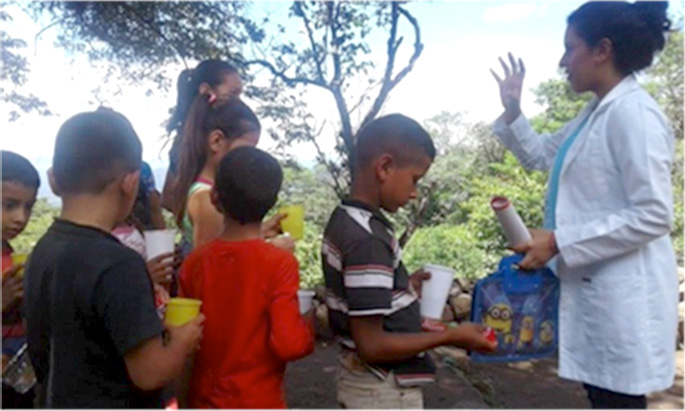
Oct 21, 2016 | Focolare Worldwide, Senza categoria
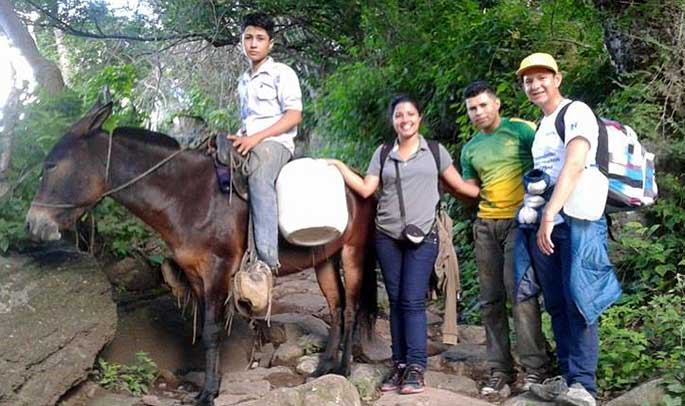 Selfless giving and receiving was the experience of the Youth for a United World from Managua, Nicaragua, during their visit to the small Focolare community of La Cal, a village that rises 1200 metres above sea level near the coffee capital of Jinotega. Armed with some bags of clothing, food, medicinals and toys that were all gathered by the community in Managua, they reached Jinotega after a 3-hour bus ride. Then they drove for 8 km in a pick-up until the road became too rough to travel on. It was still another kilometre and a half through a forest fraught with stones, crevasses and deep slopes that made the trek impossible even for the horses, and the young people had to continue on foot. “You could never imagine the wonderful welcome we received,” the young people report. The village of La Cal was in unstable condition. Its wooden houses teeming with children were without electricity, running water or medical supplies. There was a small shop in the village with some basic relief-items, a small school with one classroom, one teacher and a tiny chapel for when a pricst arrived for Mass. If not for the solar panels that were recently installed, the whole village would be in complete darkness.
Selfless giving and receiving was the experience of the Youth for a United World from Managua, Nicaragua, during their visit to the small Focolare community of La Cal, a village that rises 1200 metres above sea level near the coffee capital of Jinotega. Armed with some bags of clothing, food, medicinals and toys that were all gathered by the community in Managua, they reached Jinotega after a 3-hour bus ride. Then they drove for 8 km in a pick-up until the road became too rough to travel on. It was still another kilometre and a half through a forest fraught with stones, crevasses and deep slopes that made the trek impossible even for the horses, and the young people had to continue on foot. “You could never imagine the wonderful welcome we received,” the young people report. The village of La Cal was in unstable condition. Its wooden houses teeming with children were without electricity, running water or medical supplies. There was a small shop in the village with some basic relief-items, a small school with one classroom, one teacher and a tiny chapel for when a pricst arrived for Mass. If not for the solar panels that were recently installed, the whole village would be in complete darkness.  There were also two medical doctors with the Youth for a United World. One of them, a dentist who began the day with a presentation on oral hygiene to thirty children who so happy to use a tooth brush and toothpaste for the first time in their lives. At lunchtime one family wanted to offer some very warm and delicious tortillas, as the young people gathered the small children for games. In the afternoon presentations were offered for adults on parasite prevention. The very intense day concluded with a reading of the Word of Life, a deep spiritual moment that enveloped everyone. We were all very moved when an elderly man wished to give his blessing to the young people. This was followed by the distribution of goods that the young people had brought for them. They were offered an ex-chicken coop to sleep in that night. “It was so moving for us,” they write, “to spend the night in an ex-chicken coop just like the men in the first focolare whose house was an ex-chicken coop. In the morning, after a good breakfast that had been prepared by the women of the village, we were invited to return again soon and left for Jinotega. We went to the cathedral to thank God for the experience that had changed us so much, that had allowed us know such generous people who live their daily struggle with such dignity and joy of knowing God’s immense love for them – and for having had constructed in the midst of those mountains another small piece of universal brotherhood.”
There were also two medical doctors with the Youth for a United World. One of them, a dentist who began the day with a presentation on oral hygiene to thirty children who so happy to use a tooth brush and toothpaste for the first time in their lives. At lunchtime one family wanted to offer some very warm and delicious tortillas, as the young people gathered the small children for games. In the afternoon presentations were offered for adults on parasite prevention. The very intense day concluded with a reading of the Word of Life, a deep spiritual moment that enveloped everyone. We were all very moved when an elderly man wished to give his blessing to the young people. This was followed by the distribution of goods that the young people had brought for them. They were offered an ex-chicken coop to sleep in that night. “It was so moving for us,” they write, “to spend the night in an ex-chicken coop just like the men in the first focolare whose house was an ex-chicken coop. In the morning, after a good breakfast that had been prepared by the women of the village, we were invited to return again soon and left for Jinotega. We went to the cathedral to thank God for the experience that had changed us so much, that had allowed us know such generous people who live their daily struggle with such dignity and joy of knowing God’s immense love for them – and for having had constructed in the midst of those mountains another small piece of universal brotherhood.”
Oct 20, 2016 | Non categorizzato
The objective of the convention to be held in the Mariapolis Centre at Castel Gandolfo (Rome), is to review the professions or activities of magistrates, lawyers, chancellors, prison staff and law enforcers, and discover the path to be pursued together to achieve justice, involving all the “actors” of the multifaceted relationships involved. On Saturday afternoon, there will be separate sessions according to professions or work fields, developed to help these pathways: magistrates coordinated by Dr. Gianni Caso, President Emeritus of the Court of Cassation Section; lawyers coordinated by Atty. Orazio Moscatello of the Court of Bari and Dr. Fiorella Verona of the Court of S. Maria Capua Vetere; court personnel coordinated by Concetta Rubino, Chancellor in the Court of Naples; prison staff coordinated by Dr. Sebastiano Zinna, former director of the UEPE in Rome and Dr. Salvatore Nasca, Director of UEPE in Florence; and law enforcers coordinated by Dr. Pasquale De Rosa, former official of the Ministry of Defence. The convention is undergoing accreditation procedures by the Council of the Lawyers’ Roll of Velletri (Rome) for the recognition as a professional development course. Program Enrolment and bookings open up to 15 November 2016: prenotazioni@comunionediritto.org Enrolment form
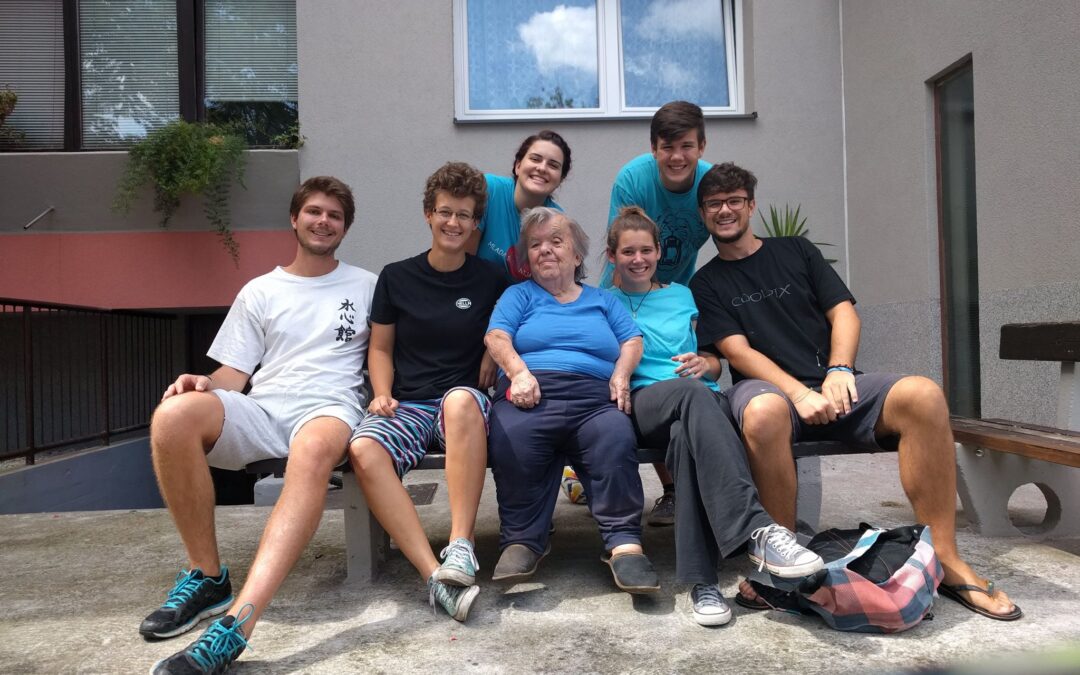
Oct 20, 2016 | Non categorizzato
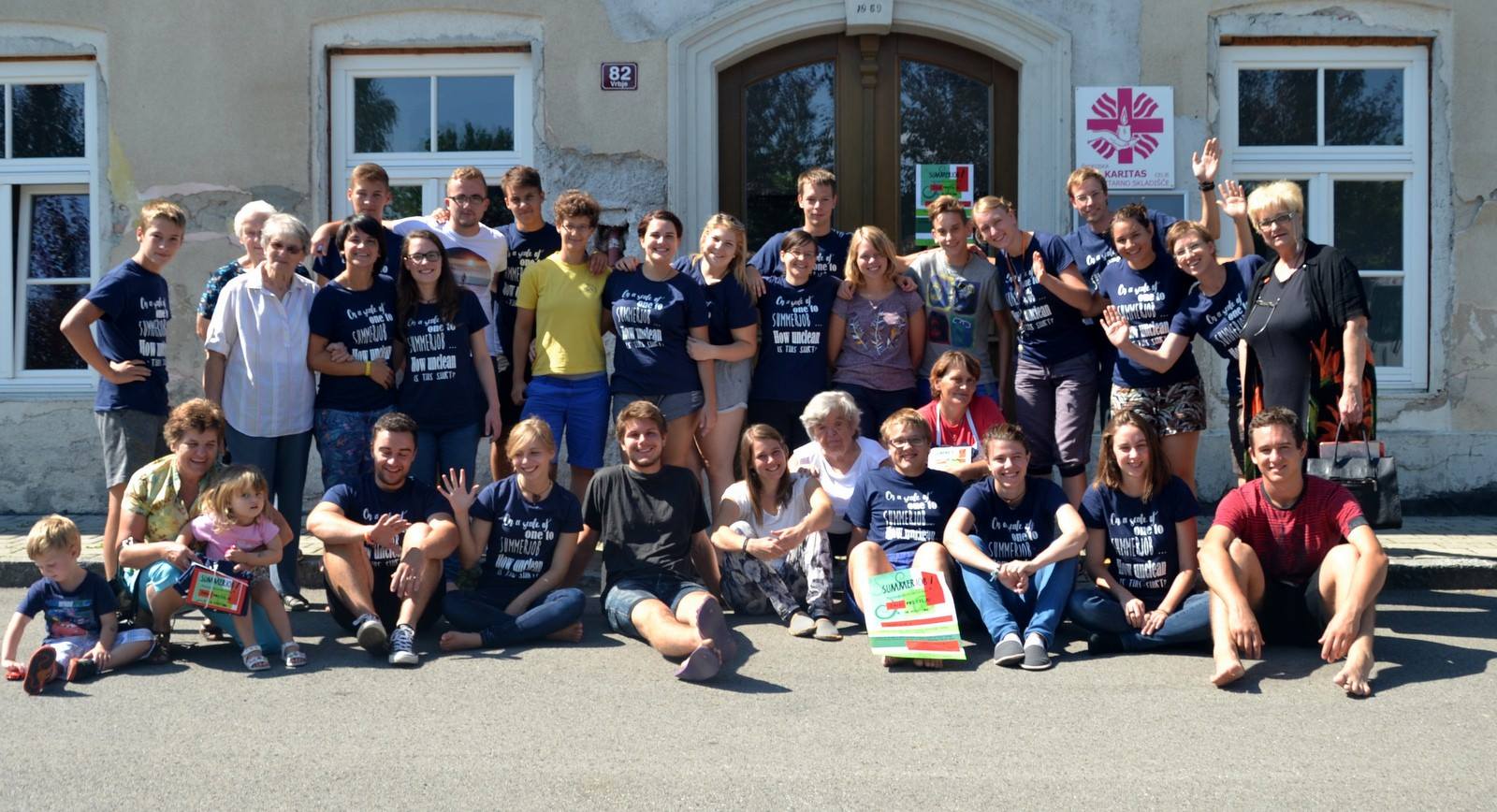 The International Day for the eradication of Poverty was commemorated on 17 October. It was instituted by Father Wresinki in 1987, when he organized a great human rights demonstration in Paris. Poverty is manifested in various ways, incarnating situations, places and entire populations. We will never get used to the fact that there are human beings who cannot enjoy a life worth living. In winter the Youths for a United World of Slovenia dedicate themselves – among other activities – to organising “Summer jobs,” in a summer work camp: in pursuit of the needs of the place, to make various contacts with the mayors, bishops, parish priests and persons of a given locality, to see how they can give their own contribution during summer, to help people in need. This year, in collaboration with the local Caritas association, people and families who needed very concrete help were sought out.
The International Day for the eradication of Poverty was commemorated on 17 October. It was instituted by Father Wresinki in 1987, when he organized a great human rights demonstration in Paris. Poverty is manifested in various ways, incarnating situations, places and entire populations. We will never get used to the fact that there are human beings who cannot enjoy a life worth living. In winter the Youths for a United World of Slovenia dedicate themselves – among other activities – to organising “Summer jobs,” in a summer work camp: in pursuit of the needs of the place, to make various contacts with the mayors, bishops, parish priests and persons of a given locality, to see how they can give their own contribution during summer, to help people in need. This year, in collaboration with the local Caritas association, people and families who needed very concrete help were sought out. 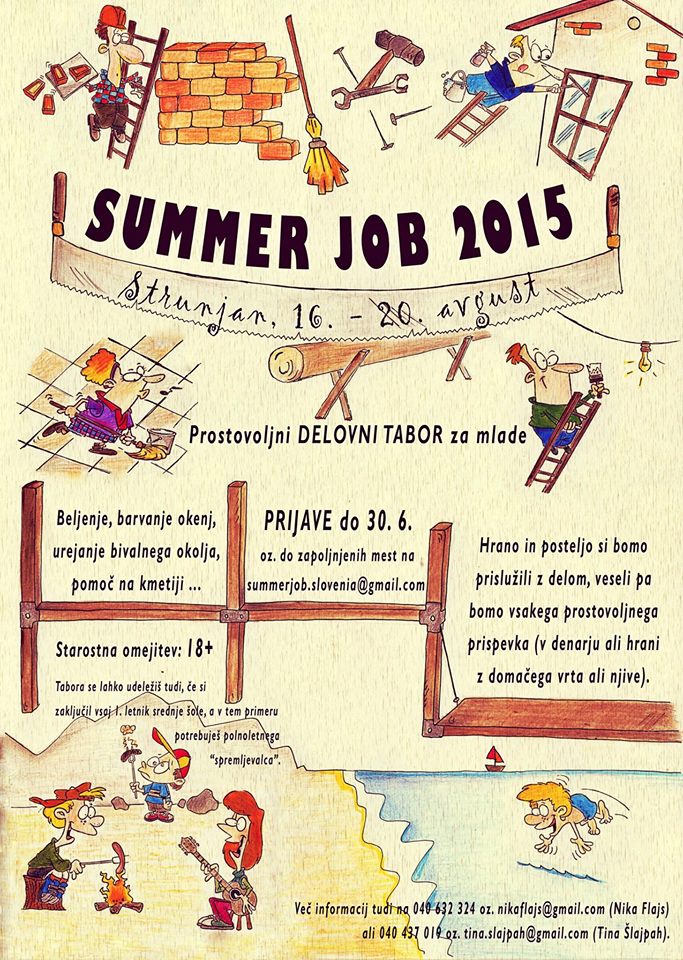 They organised an end-of-summer event from 15 to 20 August in Vrbje, a small village close to Celje. This third edition saw the opening of nine work sites. About 40 people dedicated themselves, seven hours a day, to many activities such as work in the fields, renovation of the courtyard of a house, construction of a chicken coop, restructuring of a disabled woman’s home, preparing aid for the population of Macedonia struck by floods or whitewashing the house of a woman living in miserable conditions. This was all a specific way of putting fraternity into practice, weaving deep relationships with the local folks, and restoring to many, that dignity they often feel to have lost. The decision to share some of the situations and try to bring relief to those who live at the outskirts of society is a demanding choice which requires time and energy, but it is above all the choice to give of oneself that started up the initiative.
They organised an end-of-summer event from 15 to 20 August in Vrbje, a small village close to Celje. This third edition saw the opening of nine work sites. About 40 people dedicated themselves, seven hours a day, to many activities such as work in the fields, renovation of the courtyard of a house, construction of a chicken coop, restructuring of a disabled woman’s home, preparing aid for the population of Macedonia struck by floods or whitewashing the house of a woman living in miserable conditions. This was all a specific way of putting fraternity into practice, weaving deep relationships with the local folks, and restoring to many, that dignity they often feel to have lost. The decision to share some of the situations and try to bring relief to those who live at the outskirts of society is a demanding choice which requires time and energy, but it is above all the choice to give of oneself that started up the initiative. 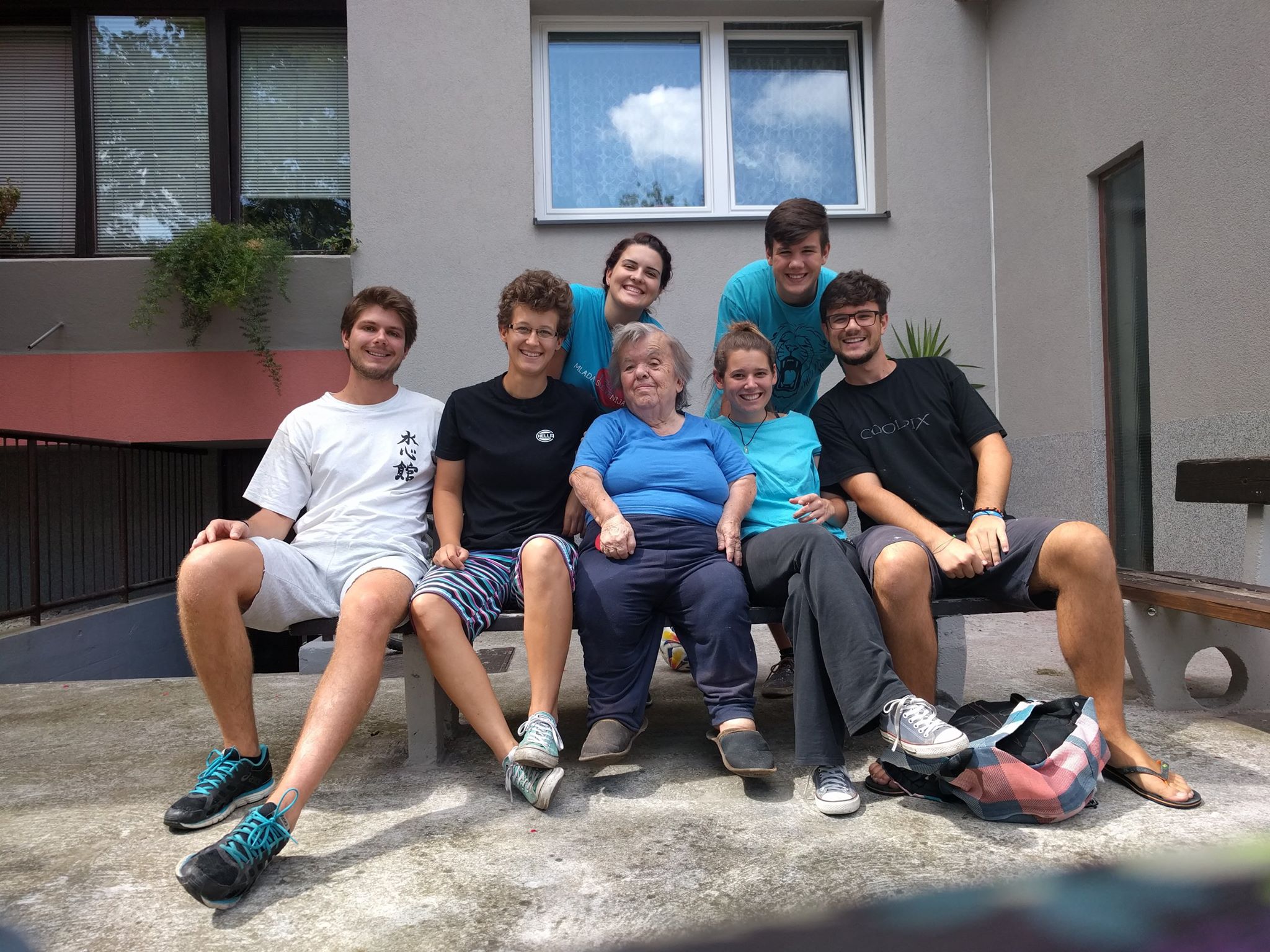 Some of the participating youths wrote about their deep impressions: «It was precisely the more difficult jobs that made us understand how most of the time, relational problems lie at the roots of poverty. For example, with a woman, even if our work had already been defined, we spent more time on the first day, only in getting to know each other, so she could trust us. Only later did she allow us to work on her apartment which needed all sorts of things». There was a lot of time for listening, speaking with many and having an exchange of experiences, worries, and future projects. All this came about in an atmosphere in which all helped each other in utmost readiness, and as a consequence, with the fullness of joy. But the Summerjob did not only consist in work: in the evening everyone shared the experiences lived during the day, and these were solemn, engaging moments that bound and united the participants more and more. Other impressions were: «Upon saying goodbye on the last day with the “employers” we suggested having coffee together to see the photos of the summer camp. It was a mystery what we managed to build in just four days. It was a really impressive moment! Just to think that in the end, the person who receives more is always the one who gives with joy. See the page on facebook of the Summerjob Slovenia 2016
Some of the participating youths wrote about their deep impressions: «It was precisely the more difficult jobs that made us understand how most of the time, relational problems lie at the roots of poverty. For example, with a woman, even if our work had already been defined, we spent more time on the first day, only in getting to know each other, so she could trust us. Only later did she allow us to work on her apartment which needed all sorts of things». There was a lot of time for listening, speaking with many and having an exchange of experiences, worries, and future projects. All this came about in an atmosphere in which all helped each other in utmost readiness, and as a consequence, with the fullness of joy. But the Summerjob did not only consist in work: in the evening everyone shared the experiences lived during the day, and these were solemn, engaging moments that bound and united the participants more and more. Other impressions were: «Upon saying goodbye on the last day with the “employers” we suggested having coffee together to see the photos of the summer camp. It was a mystery what we managed to build in just four days. It was a really impressive moment! Just to think that in the end, the person who receives more is always the one who gives with joy. See the page on facebook of the Summerjob Slovenia 2016



 In school, the boys and girls use tree trunks as chairs and use their laps as desks. This all happens on the Isle of Idjwi in the middle of Lake Kivu, on the eastern side of the
In school, the boys and girls use tree trunks as chairs and use their laps as desks. This all happens on the Isle of Idjwi in the middle of Lake Kivu, on the eastern side of the 
 Sensitive to social problems, as a youngster in
Sensitive to social problems, as a youngster in 






